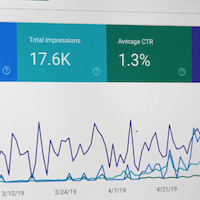Long-tail keywords come with their own pros and cons, so it’s important that you are aware of them before you consider using them! Using such keywords in a context of generating new business has proven to be effective, especially if the content of the keyword itself nails the prospects’ identified problem as a “long-term keyword” can be defined as phrases that consist of 2-5 words, are rather specific, and are used by the searcher when a specific issue needs to be resolved.
The gap to utilise
A lot of the larger branded companies do not use long-tail keywords when they start to plan a digital campaign – this means that you as a business will not be facing a huge competition base when you start to bid on them, ultimately making it cheaper for you and more effective in generating new marketing qualified leads.
The more specific your keywords are the more likely they are to bring targeted traffic towards your website and prevent those who are merely searching the web for simple, easy-to-access information.
The downsides of such tactic
Sometimes the keywords can be so specific that the chances are fewer people will be searching for them – resulting in less traffic over time. The trick is to find the balance. As content plays an ever increasing role in the website’s search rankings, it is important to incorporate the right keywords into your content without forcing it. Remember that all search engines want to do is provide the best result for the search, so your content needs to be what the visitor is looking for.
Final thought
Long-tail keywords represent about 70% of all search traffic, however for a business it generates less search volume. If you are ready to take the punch in your metrics, it’s actually a more effective long-term strategy than pursuing more generic, short keywords with high search volume.

